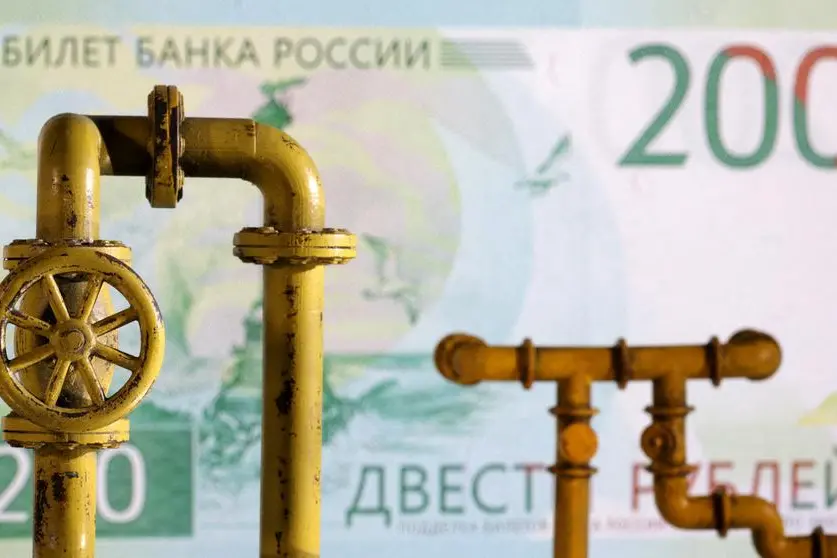PHOTO
Dutch wholesale gas briefly traded at the highest level this year so far on Friday morning but later eased as Russian gas continued to flow via Ukraine despite ongoing fights near a key transit point in Russia.
The benchmark front-month contract at the Dutch TTF hub was down 0.49 euro at 39.71 euros per megawatt hour (MWh), or $12.70/mmbtu, by 0857 GMT, LSEG data showed.
Earlier in the day, it traded at 40.25 euros/MWh, its highest level since Dec. 8.
The British front-month gained 1.81 pence to 97.24 pence per therm, while the day-ahead contract was up 3.00 pence at 81.00 p/therm. Price have risen this week after Ukraine mounted a surprise incursion into Russia's Kursk region, where Russian natural gas flows into Ukraine.
Ukrainian forces have taken control of the Sudzha gas transit station, Ukrainian energy minister German Galushchenko confirmed, with the transit route for Russian gas deliveries to Europe via Ukraine is still functioning.
Russia's Gazprom said it would send 38.5 million cubic metres (mcm) of gas to Europe via Ukraine on Friday, up slightly from 37.3 mcm on Thursday.
Gazprom was likely not inclined to use this situation as a reason to reduce gas deliveries to its remaining customers in Central Europe, said Laurent Ruseckas, executive director of EMEA gas at S&P Global Commodity Insights.
Similarly, since the Russian invasion, Ukraine has been actively seeking to avoid any perception in Europe that it is disrupting the transit of Russian gas to the continent, he added.
"Therefore, it is unlikely that they would have seized the facility with the intention of disrupting its operations," he said. Christoph Halser, a gas and LNG analyst at Rystad Energy, said that given otherwise largely bearish fundamentals and that the attack came as a surprise to most observers, the market has priced in the potential for halted flows already to a large extent.
Supply concerns are however somewhat buffered by well-filled gas storages, according to ING analysts. European gas storages were last seen 86.7% full, close to their 90% target for Nov. 1, Gas Infrastructure Europe data showed.
In the European carbon market, the benchmark contract eased by 0.26 euro to 70.80 euros a metric ton.
(Reporting by Nora Buli in Oslo, additional reporting by Nina Chestney; editing by Nina Chestney)





















